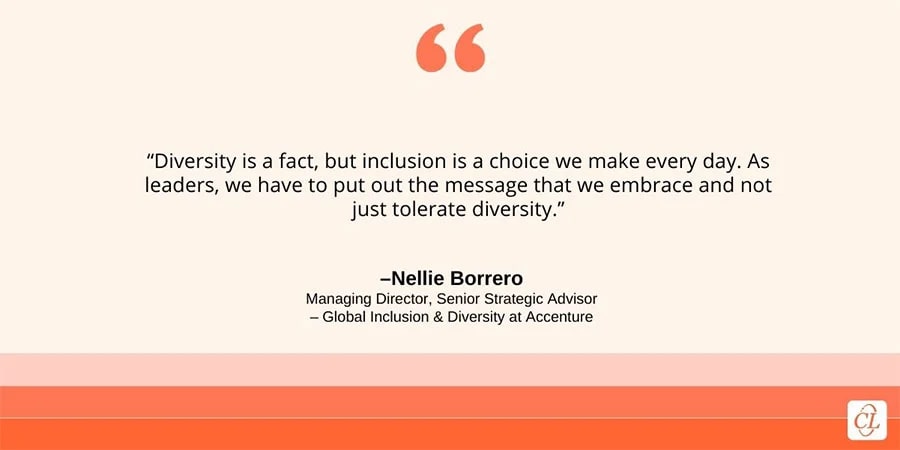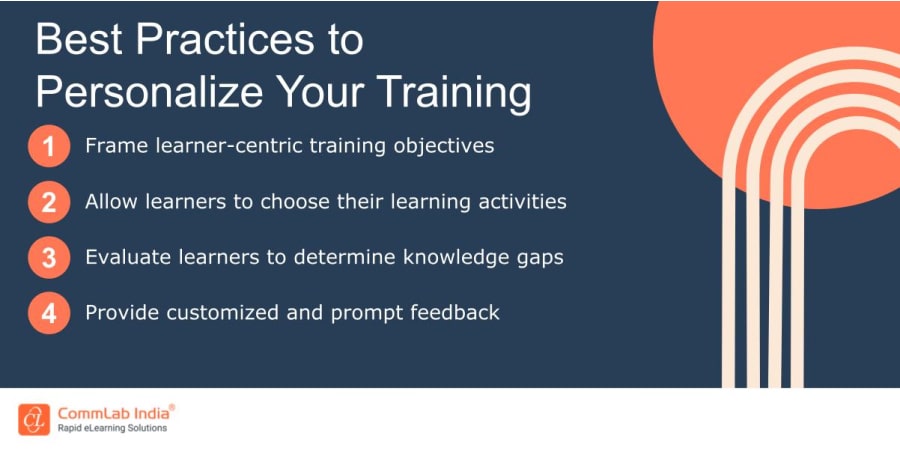Inclusivity Redefined: How to Build Inclusive Learning Experiences with AI

The landscape of corporate training is undergoing a significant transformation. Gone are the days of one-size-fits-all seminars and generic online modules. Today, organizations are recognizing the critical importance of inclusivity in learning and development (L&D) programs. This shift is driven by a compelling truth: a truly inclusive learning experience fosters a more engaged, productive, and loyal workforce.
Want to Explore How AI can Build Inclusive Learning Experiences?
Here’s how AI is redefining it -
- Personalized content and delivery
- AI-Driven Accessibility Features
- Focus on Neurodiversity
Why Inclusivity Matters in Corporate Training?
Inclusivity in training goes beyond checking a box. It's about creating an environment where every employee, regardless of background, learning style, or ability, feels empowered to thrive. Here's how inclusivity directly impacts your organization's success:
- Employee Engagement: When employees feel their unique needs are valued and addressed, they become more invested in their own growth and the company's success. Inclusive training fosters a sense of belonging and motivates individuals to actively participate in the learning process.
- Retention: Studies show that a lack of training opportunities is a significant factor in employee turnover. By providing inclusive learning experiences, you demonstrate a commitment to employee development, leading to higher satisfaction and retention rates.
- Productivity: When employees have access to targeted learning that directly applies to their roles, they become more efficient and productive.

The AI Revolution in Inclusive Learning Experiences
Artificial intelligence (AI) has the potential to revolutionize corporate training by making it more personalized, accessible, and ultimately, inclusive. Here's how AI is redefining learning experiences:
1. Personalized Content and Delivery
AI algorithms can analyze employee data, such as job roles, prior knowledge, and learning styles. This allows for the creation of customized learning journeys that cater to individual needs. Imagine an AI-powered platform that recommends specific modules, delivers content in preferred formats (text, audio, video), and adjusts the difficulty level based on the learner's progress.
2. AI-Driven Accessibility Features
AI can bridge the gap for employees with disabilities. Tools like automatic language translation for non-native speakers, closed captioning for video modules, and text-to-speech conversion for written materials can make learning materials accessible to a wider audience.
→ Download eBook: Storytelling and AI
3. Focus on Neurodiversity
AI can personalize learning for individuals with neurodiverse conditions such as dyslexia or ADHD. Features like adjustable font size, customizable color schemes, and the ability to break down complex concepts into smaller, digestible modules can significantly improve the learning experience for these individuals. Here are a few best practices for personalizing training.

Beyond Personalization: The Power of AI-powered Learning Analytics
The power of AI extends beyond tailoring content and delivery. AI algorithms can analyze individual learning patterns and preferences, providing valuable insights into strengths, weaknesses, and areas needing further development. This data can then be used to:
- Identify Knowledge Gaps: By analyzing completion rates and assessment scores, AI can pinpoint areas where specific teams or individuals struggle. This allows trainers to address these knowledge gaps with targeted interventions or supplementary materials.
- Predict Learning Needs: AI can analyze industry trends and employee performance data to anticipate future skill requirements. This forward-thinking approach ensures that employees are equipped with the necessary knowledge and skills to stay ahead of the curve.
- Measure Training Effectiveness: Traditionally, measuring the effectiveness of training programs has been a challenge. AI can analyze post-training assessments and performance metrics to provide a more comprehensive picture of whether training objectives are being met.
Building a More Inclusive Future with AI
While AI offers tremendous potential for creating inclusive learning experiences, it is crucial to use this technology responsibly. Here are some key considerations:
- Addressing Bias: AI algorithms are only as good as the data they are trained on. It's essential to be mindful of potential biases in training data to ensure AI-powered learning experiences remain fair and equitable.
- Human-Centered Approach: AI is a powerful tool, but it should not replace human interaction in the learning process. Trainers, mentors, and subject matter experts should continue to play a vital role in guiding, motivating, and supporting employees throughout their learning journeys.
- Accessibility for All: As AI integration advances, accessibility features need to be continuously improved to ensure everyone can benefit from this technology.
Practical Examples of AI Applications
To make the benefits of AI-powered inclusive learning more tangible, include specific examples of how organizations utilize AI technology:
- Virtual Reality (VR) Simulations: VR can create immersive scenarios for practicing skills like conflict resolution, public speaking, or difficult conversations in a safe environment. This is particularly beneficial for kinesthetic learners or for developing empathy and perspective-taking.
- Intelligent Chatbots: Chatbots can act as 24/7 learning assistants, answering questions outside regular training hours, providing summaries, and offering quick quizzes to reinforce knowledge.
- Adaptive Assessments: AI-driven assessments can adjust questions in real-time based on the learner’s responses. This avoids discouraging learners if questions are too difficult or boring those who already understand the concept.
The Road to Inclusive Learning
The path towards truly inclusive learning requires a multi-pronged approach. By leveraging the power of AI alongside a commitment to diversity and accessibility, organizations can create learning experiences that empower every employee to reach their full potential. This, in turn, fosters a more engaged, productive, and innovative workforce, driving organizational success in the years to come. Here’s an eBook that will help you understand how to make use of AI to design eLearning courses that are interactive, inclusive, and effective.




![Flash to HTML5 Conversion after the Phase-out [Infographic]](https://blog.commlabindia.com/hubfs/Imported_Blog_Media/flash-html5-conversion-post-phase-out-info.jpg)
![Build Engaging Induction Training with Online Learning [Infographics]](https://blog.commlabindia.com/hubfs/Imported_Blog_Media/key-components-of-online-supply-chain-management.png)